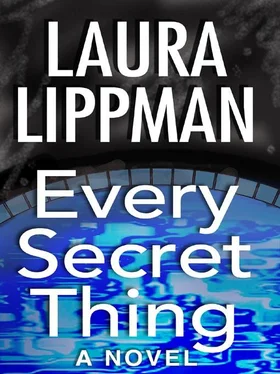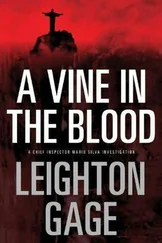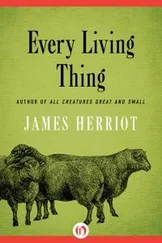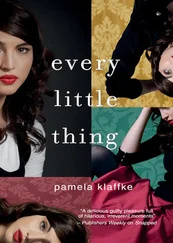“Bathroom?” he asked.
“The first door on your right, when you go out in the hallway,” she said. Was he a washer, she wondered. Or did he just need to pee? Both, as it turned out. She listened as one stream of water followed another. She rather liked his fastidiousness.
So what was wrong with Daniel Kutchner? Some women, aware that they had dated their way into an instantaneous dead end, might have turned the question on themselves, but Sharon never would. She got up, comfortable enough in her skin so that she didn’t feel the need to put on a robe or T-shirt, and headed out into the hall, knocking on the bathroom door as she passed by.
“Do you want anything? I’m going to fix myself a drink.”
This interrupted the third stream of water-probably from the faucet. Daniel Kutchner must be washing his hands now.
“You mean, like a glass of water, or a soda?”
“I have those, too,” Sharon said. “But I was thinking of a drink-drink, truthfully. I like to have a glass of white wine, or Bailey’s on the rocks before I go to sleep. I’ve got a full bar.”
“How not-Jewish,” Kutchner said through the door and they both laughed, for it was the theme of the evening, the pleasant bond they had established over dinner, making a list of what was Jewish and what was not. “Okay. Sure. Whatever you’re having.”
Sharon wandered through her apartment, which would have surprised her coworkers if they had ever been invited to see it. Her apartment was the only clue to Sharon ’s secret: She could afford to work at the public defender’s office because there was family money. Not a lot, but enough to close the gap between the barely middle-class lifestyle afforded by a government wage and the upper-middle-class life to which she was accustomed. That’s why it was nice, bringing home someone like Daniel, who knew about the Kerpel-mans and the small foundations company that had made everyone permanently comfortable when it began catering to postop breast cancer patients.
She returned to the bedroom with two old-fashioned glasses, aluminum Russell Wright knockoffs, on a matching tray, and set them on the bedside table.
“How civilized,” Daniel said, coming back into the room. He was skinny and on the short side, and his hairline would probably start receding soon. But those things didn’t matter to Sharon. The real problem with Daniel Kutchner was that her mother had picked him out for her, as his mother had picked Sharon out for him, and this could not be overcome.
He sat on the side of the bed, as if he hadn’t decided whether to sleep or flee. Sharon didn’t care if he left eventually. The only thing she asked of her intermittent lovers was that they talk to her afterward. Hence, the ritual of the drink. If she had smoked, that would have worked, too. But she didn’t, and so few people did now. But confronted with an offer of a drink, few men could insist on going to sleep, or running out the door.
Daniel set his glass back down, knocking over a small wooden frame. As he righted it, he peered at the face in the photograph, just visible in the available light coming from the bathroom.
“Who’s this? Not you with these pigtails.”
“No, I was never a blond, that’s for sure.”
“Niece?”
“Client.”
The photo was one of Alice, an old snapshot that Helen Manning had given Sharon for reasons she could no longer recall. She only knew it was a “before” photo of sorts, a picture of Alice from earlier in the summer of her eleventh year. A snapshot of a perfectly normal-looking little girl. Which was the point, of course, the thing that Sharon had never wanted anyone to forget.
“Client? Why do you have a photo of a client by your bedside?”
“Because it was probably the most amazing case I’ll ever be involved with.” She had meant to be a little hyperbolic, but realized the words, once spoken, were the simple truth. “You’re from Baltimore, right?”
“Originally.”
“Seven years ago-I’m not sure if it was in newspapers outside the area-two little girls were accused of killing a baby.”
“And that girl is-”
“One of the accused. Even now, even here, I wouldn’t say her name to you. It’s privileged. We kept their names private, which was no small thing, let me tell you.”
“So they weren’t tried as adults?”
“They were eleven!” Sharon ’s voice rose automatically, and she had to remember to yank it back down to a tone better suited to a postcoital chat. “There was no provision in Maryland law to try children that young as adults. Not that the parents of the victim didn’t push for that. And then, when it was clear the family wouldn’t get its way, the victim’s mother threatened to lobby to have the law changed, so homicides could be moved into adult court no matter what the age of the accused.”
“Bad cases make bad law, right?”
“Yeah. And she had the juice, her family was connected. She could have done it. That’s why we were forced to compromise.”
“How so?”
“At the time, the law held that juveniles couldn’t serve more than three years for any one crime. The other girl’s lawyer and I crafted a plea that allowed the state to give them seven years on three counts-homicide, kidnapping, and felony theft. For the baby carriage,” she added, anticipating his question. “I don’t remember the brand, but it was one of those things that was expensive because it was so light.”
“Like a laptop,” Kutchner said. “Or a cell phone. The smaller it is, the more you pay.”
Sharon nodded, annoyed at the interruption. “So they went away until they were eighteen, and the victim’s mother calmed down. Eventually.” She swirled the Baileys in her glass, watched the creamy pale brown liquid flow over the ice. “Truthfully, I’ve always thought my client would have been better off if I could have taken the case into an adult court, with a jury and the public’s full oversight.”
“How can that be?”
“She told me she was innocent. That she wasn’t there when it happened. She was with Ron-the other girl-when they took the baby, but it was a kid thing. They thought the girl had been left alone, they were trying to do the right thing. They didn’t set out to be criminals, to do something violent. Something went wrong.”
“How did-I mean-”
“Suffocation. That was another thing. The child’s death wasn’t inconsistent with SIDS. I could have argued that.”
“Isn’t that paradoxical? Arguing that your client wasn’t there, arguing that your client might have been there but the death was due to natural causes.” Daniel Kutchner was an accountant.
“A good defense doesn’t have to be consistent.”
No sound came from Daniel Kutchner’s side of the bed, except for the ice in his glass, a small swallow, a slight creak in the springs as he shifted his weight. An accountant sitting in judgment on a lawyer. Sharon decided not to mention what accountants had wrought in recent years.
“In a way, I’ve always felt Alice was sacrificed.” Sharon did not even notice she had given up the name she was usually so vigilant about protecting.
“Sacrificed?”
“There was so much…bad feeling about what happened. The victim was black, the accused girls were white. As you can see. And the media harped on the case so. People wanted to feel that something had been done. They wanted guarantees that it would never happen again. Which is impossible. Look, there are cases of young killers going back hundreds of years. And I don’t mean sociopaths, or some stupid bad seed scenario. Kids kill. To me, the amazing thing is that they don’t kill more often. Because they don’t really get it, you know? Death, I mean.”
She did not share with him her fantasy of trying Alice before a jury of her true peers, a dozen little big-eyed girls who knew what it was to make mistakes out of no larger sin than the desire to go along and get along. She imagined twelve little gamma girls-or was Alice a beta, according to the terms set out in the flurry of literature on “mean girls”-watching her solemnly as she laid out the facts, described Ronnie’s sway over her client. It would have taken such a jury less than an hour to acquit Alice.
Читать дальше












